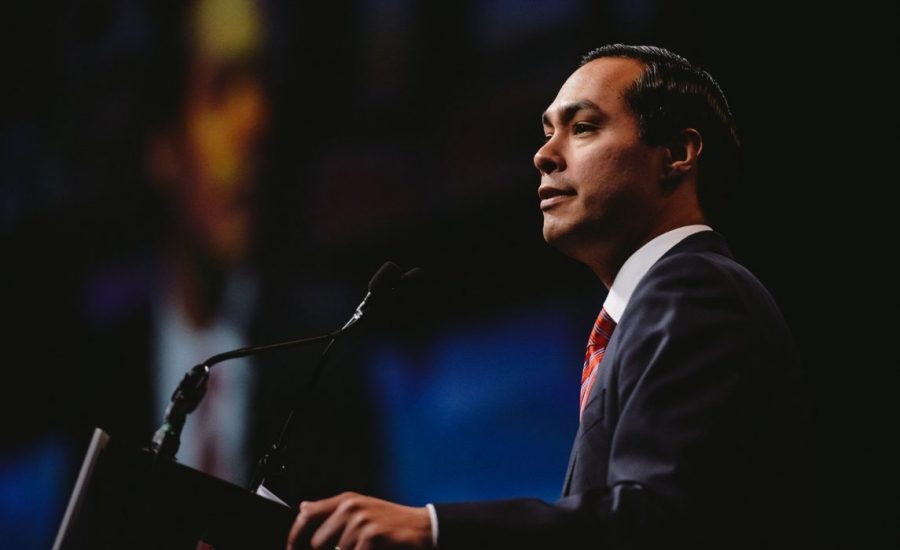Opinion | The Historic 2020 Democratic Primary
In an interview on Tuesday, Feb. 19, Bernie Sanders announced he will seek the presidency for a second time, in 2020. Sanders began his first campaign with virtually no name recognition at the national level, but quickly built a rabid following that nearly cost Hillary Clinton — the former first lady, New York senator, Secretary of State, and obvious frontrunner — the Democratic nomination.
2020 will be different for several reasons. This time, Sanders will begin the campaign as a frontrunner. He already has massive national fanbase. But the most compelling difference about Sanders’s 2020 campaign compared to that of 2016 is the fact that, so far, he is the only serious candidate who is white, straight and male.
So far, the majority of candidates for the Democratic nomination are women. Senators Elizabeth Warren of Massachusetts, Kirsten Gillibrand of New York, Kamala Harris of California and Amy Klobuchar of Minnesota all announced their bids before Sanders. Until today, the only major male candidate was Senator Cory Booker of New Jersey — a black man.
The lesser-known candidates are also strikingly diverse. Julián Castro (pictured above), the former HUD secretary and mayor of San Antonio, is Latino; Rep. Tulsi Gabbard of Hawaii is the both the first Samoan-American and the first Hindu member of Congress; and Pete Buttigieg, mayor of South Bend, Indiana, would be the first openly gay nominee of a major party.
If he wins the nomination and defeats Trump in the general election, Bernie Sanders will also make history, as the first Jewish president.
Never before have we seen such a diverse and progressive field of candidates. Even if Joe Biden enters the race and wins the Democratic nomination, this primary election will still be the most impactful in recent memory, if not in American history.
It will have a profound influence not only on the next four years of American government, but on our collective national psyche as well.
This degree of diversity is astronomical compared to the 2016 campaign. Of the Republican candidates, only one was a woman (Carly Fiorina), one was an Indian American (former Louisiana Gov. Bobby Jindal) and two were of Cuban descent (Sens. Marco Rubio and Ted Cruz). The other 13 were white men.
Of the six Democrats seeking their party’s nomination in 2016, Clinton was the only woman. All six were white.
2020 will be different. Once the race gets going, Americans will turn on their TVs to see a Jew, a gay man, several people of color and several women debating one another and all making passionate arguments for why they should be the next president. That has never happened before in this country.
In 2008, some Democrats were afraid of nominating Barack Obama because they thought a black man could never win the presidency. In November, he went on to win 28 states, 69.5 million votes, and 365 out of 538 electoral votes. Obama’s landslide victory — as well as the wave of diverse candidates elected to Congress this past November — should dispel any lingering concerns that the diversity of this year’s Democratic candidates will nix any chance of defeating Trump in the general election.
The 2020 Democratic slate’s diversity is an asset, not a weakness. The fact that a black woman, a gay man, two men of color, and a number of female Senators could pose a legitimate threat to beloved white, male political powerhouses like Sanders and Biden is both empowering and strategically advantageous.
The American people love an outsider; someone who resists the status quo of politics. By challenging our cultural understanding of what a candidate for president looks like, the 2020 Democrats are leaning into that outsider image.
2018’s blue wave was majestic because it saw the introduction of the most demographically diverse group of federal legislators in American history. Even in the Trump era, a dark time for American government, their victory spells a bright future for this country’s politics. The 2020 Democratic primary is the continuation of that progressive trend. Hopefully, it will result in triumph just as the midterms did.

After writing for The Banner as a junior, Duncan Glew '19 is excited to be co-managing The Banner this year with fellow senior Hannah Triester. Outside...



